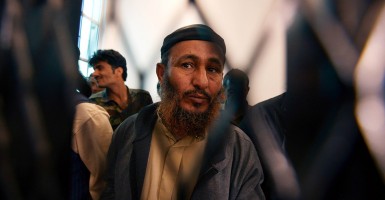These terrorists might not be kidnapping girls and garnering international outrage, like their Nigerian cousins, Boko Haram, but they are violently disrupting regional stability in sub-Saharan Africa.
Al-Shabaab, an al-Qaeda-linked group that operates out of Somalia, continues to threaten the United States’ diplomatic mission in Kenya, the U.S.’ largest embassy in Africa, and to make trouble elsewhere in the Horn of Africa
The U.S. embassy in Kenya is crucial. The United States’ regional humanitarian support, security training programs, peacemaking efforts, USAID programs and many other vital U.S. platforms are based or coordinated out of there, as are many the operations of many other donor governments and international non-governmental regional headquarters. That’s why, drawing down our embassy there, as reports have suggested the U.S. plans to do, would have significant repercussions—as have the severe travel warnings issued by the United States and United Kingdom.
Even after a 7-year campaign led by AMISOM, the Africa Union Mission in Somalia, Al-Shabaab remains a “persistent threat in Somalia and East Africa,” according to the General David M. Rodriguez, Commander of AFRICOM, the United States Military Command for Africa.
Last month, al-Shabaab attacked a popular Western restaurant in Djibouti, a country that shares a border with Somalia. Al-Shabaab said it conducted the attack to target French “crusaders” and their NATO allies for afflicting their “Muslim brothers.” Djibouti is home to the only U.S. military base in Africa, and the country’s main port serves as a key point for international navies conducting counter-piracy operations. Djibouti also contributes troops to AMISOM, for which both Kenya and Uganda have been targeted by al-Shabaab in the past.
Al-Shabaab was responsible for the World Cup bombings in Uganda in 2011 and the Westgate Mall attack in Kenya in 2013.
But the restaurant attack is the first in Djibouti to be claimed by al-Shabaab since Djibouti joined AMISOM in 2011.
Last month, al-Shabaab also struck at the heart of the nascent democratic system in Somalia by attacking the parliament building in Mogadishu. At least 10 people were killed and 10 members of parliament were injured. As Mark Doyle, a BBC correspondent, stated, “…al-Shaba[a]b has the capacity to keep coming back. It is generally accepted in Somalia that if AMISOM – with US backing – was not there, the government in Mogadishu would almost certainly fall.”
Despite AMSIOM’s ability to secure swathes of formerly al-Shabaab-controlled territory, al-Shabaab has moved underground and remains capable of threatening the region and U.S. interests. Now the U.S. is choosing to downsize its diplomatic presence, which is needed to counter al-Shabaab and like-minded individuals in the region. Given the ongoing instability in the Central African Republic, Somalia and South Sudan and the direct security concerns for U.S. officials on the ground, the U.S. diplomatic mission in Kenya is even more important to ensuring U.S. interests in the region are protected.
A smaller diplomatic presence will limit U.S. efforts to help counter al-Shabaab and support its partners in the region. The U.S. mission in Kenya plays a critical role in countering extremism in the region, and a robust diplomatic presence is required to ensure those efforts are fulfilled.



























